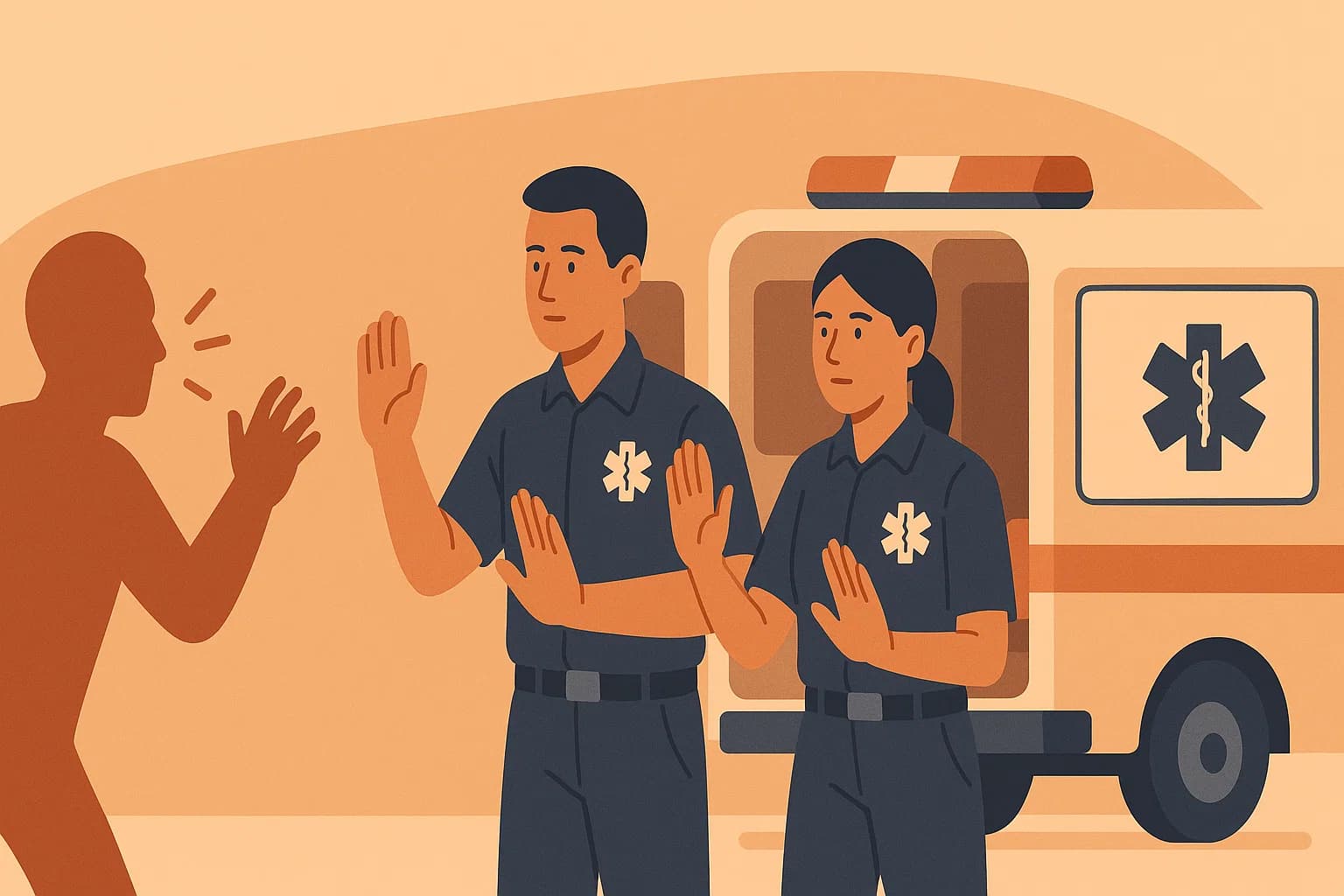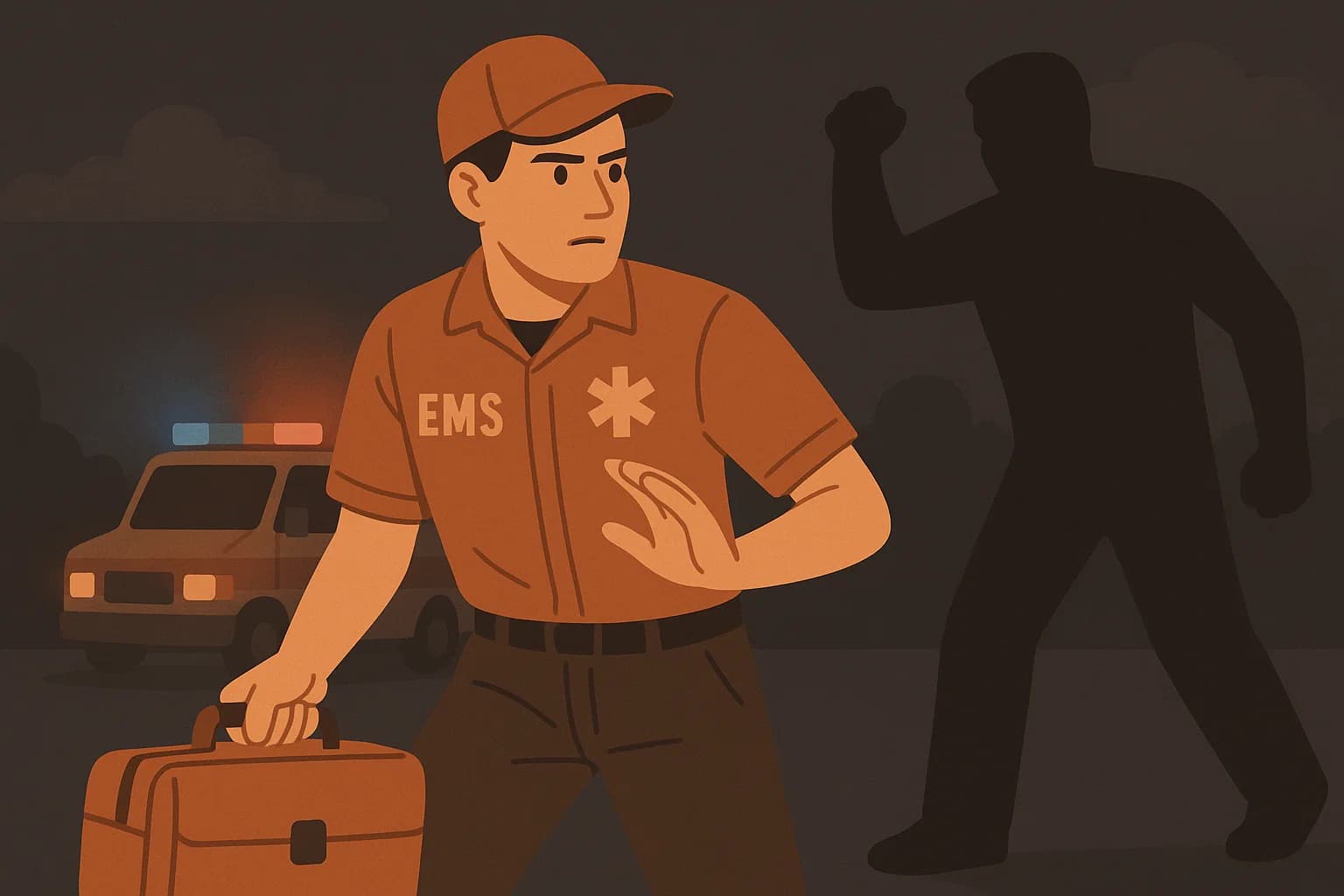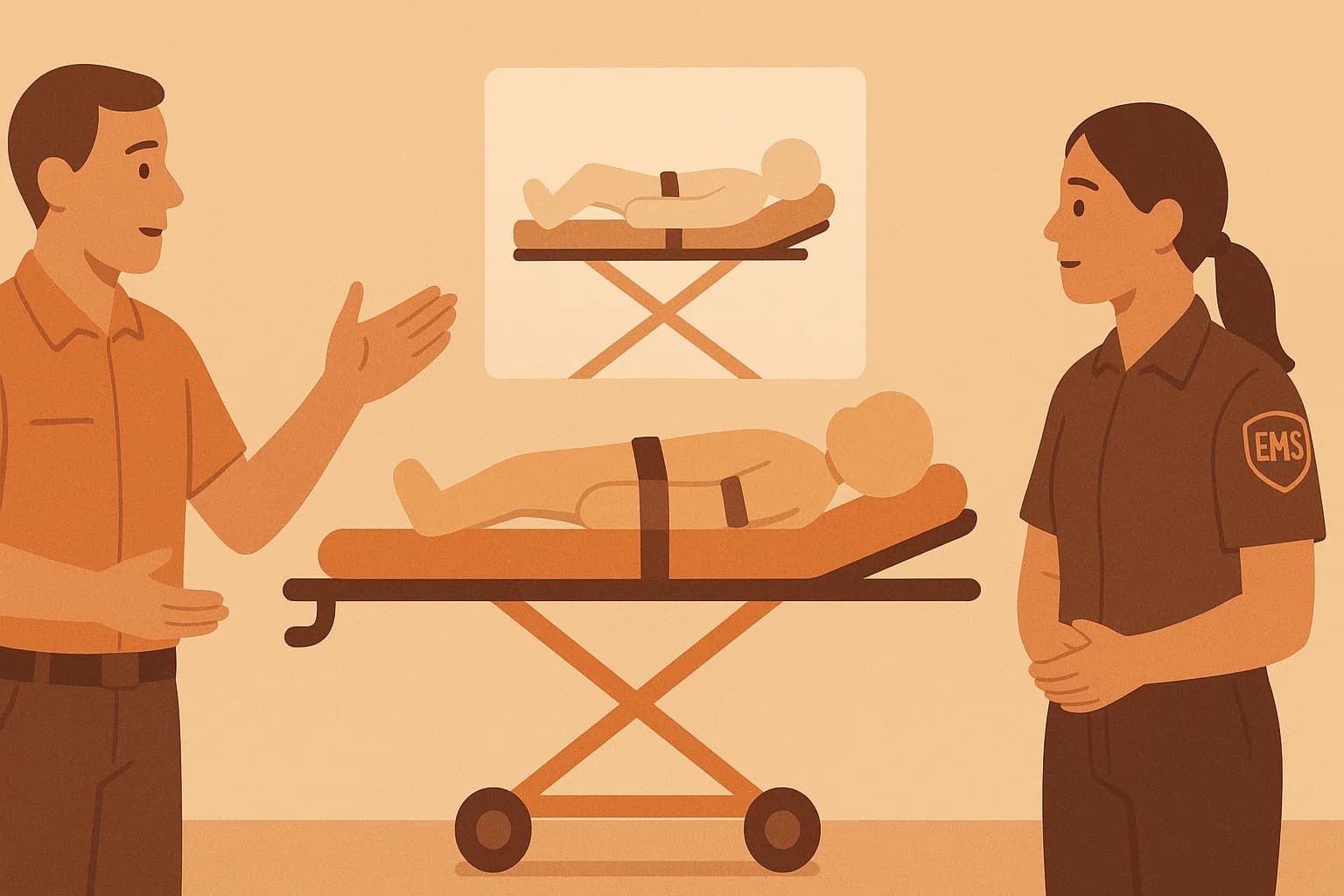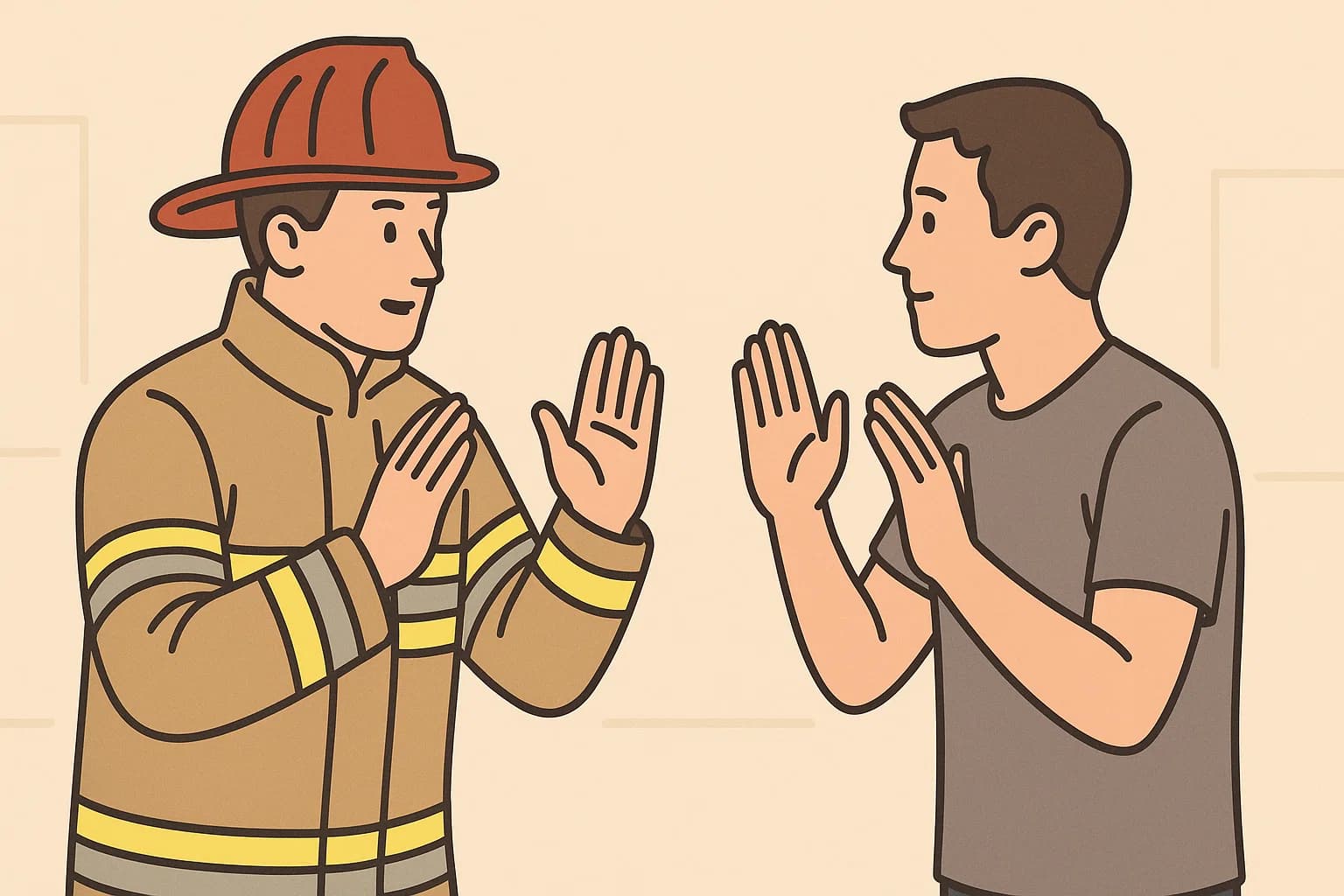Violence against first responders is a national crisis. Firefighters and EMS providers routinely face unpredictable, escalating, and sometimes violent encounters while simply trying to save lives. Until now, there has been no national standard requiring structured self-defense training for EMS. That is about to change.
The National Fire Protection Association (NFPA) has proposed a major update to NFPA 455, the Standard for Emergency Medical Services (EMS), which will go into effect in 2026. This landmark change introduces a requirement for verbal de-escalation and self-defense training as part of EMS education and annual refreshers.
📄 Read the NFPA 455 Proposed Update
What’s Changing in NFPA 455?
The new Chapter 11.4 Medical Self-Defense Training requires EMS providers to ensure practitioners receive both initial and annual refresher training in:
- Verbal De-escalation – Communication techniques to defuse conflict before it escalates.
- Standing Defenses – Distance management, wrist releases, choke defenses, grip breaks, edged weapon defense, and more.
- Bedside Defenses – Techniques for dealing with grabs, bites, and chokes in close quarters.
- Ground Defenses – Survival skills for when providers are taken to the ground (e.g., mount and guard survival).
This is the first time NFPA has explicitly acknowledged the need for EMS providers to defend themselves while on duty.
Why This Matters
-
Workplace violence is common in EMS.
Studies show that nearly half of EMS professionals fail to escape escalating violent scenarios, and many lack adequate training in de-escalation or self-defense. -
Violence is preventable with training.
Research indicates that EMS practitioners want more education in verbal de-escalation and hands-on defense tactics. Agencies that provide this training report fewer injuries and better outcomes. -
Safety improves patient care.
When EMS providers feel secure, they can better focus on patient outcomes. Safety and care go hand-in-hand.
What the Research Shows
Several studies support this change:
- JACEP Open (2022): Nearly 50% of EMS professionals did not escape escalating threats in simulated scenarios. De-escalation and escape training were identified as critical needs.
- Injury (2018): Assaulted medics reported that specialized training and situational awareness could have prevented many violent incidents.
- NAEMSP Position Statement (2021): Recognized the risks of dealing with combative patients and endorsed proper training and rapid intervention strategies.
- NAEMT Report (2019): EMS providers themselves overwhelmingly asked for more de-escalation and self-defense training.
The evidence is clear: structured, ongoing training reduces risks and saves lives.
Addressing Concerns
Some EMS leaders worry that self-defense training could blur the line between medical professionals and law enforcement. Others fear it might encourage unnecessary confrontation. But frontline providers consistently say the opposite — they want these tools not to fight, but to survive and disengage safely when violence erupts.
The proposed NFPA update strikes the right balance by requiring both verbal de-escalation as the first line of defense and self-defense techniques as a last resort.
What’s Next?
- The comment period closes June 3, 2025. Anyone can submit feedback to NFPA here regarding this proposed change.
- Or submit by email: Submit a comment via email. In your message, please identify Proposed TIA 1829 (NFPA 455), state whether you SUPPORT or OPPOSE the TIA, and include your comment for the Secretary, Standards Council.
- If adopted, the new NFPA 455 standard will take effect in 2026, setting a precedent nationwide.
Final Thoughts
This is a historic step forward for first responder safety. By embedding de-escalation and self-defense training into the national EMS standard, NFPA is acknowledging a truth providers have known for decades: safety must come first.
At VEST First Responder, we welcome this change and remain committed to preparing EMS and fire personnel with the tools they need to handle violent encounters. Training saves lives — both yours and your patients’.
What do you think?
Share your thoughts with us — your feedback helps shape the future of first responder training.
Get in TouchKeep reading



